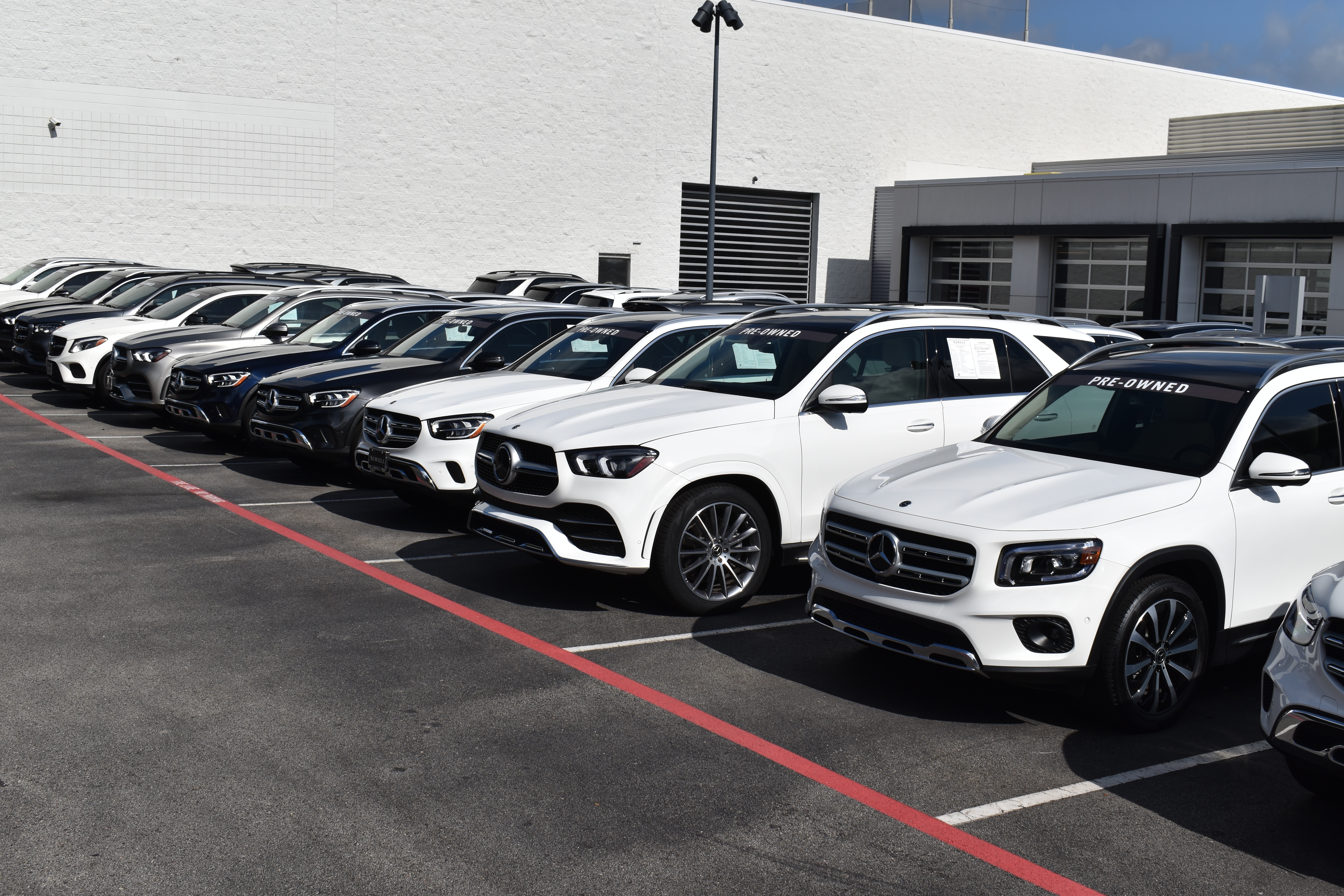Unveiling Excellence: Exploring the World of Luxury Vehicles
Journey into the realm of luxury vehicles, where elegance meets cutting-edge technology. From sleek sedans to powerful SUVs and high-performance sports cars, luxury vehicles offer a symphony of opulence and innovation. Revel in bespoke craftsmanship, premium materials, and state-of-the-art features designed to elevate your driving experience. Whether seeking refined comfort, top-tier performance, or the latest in automotive advancements, luxury vehicles cater to discerning tastes, promising an unparalleled blend of style, prestige, and exhilaration on the road. Discover the epitome of automotive excellence in a world of luxury and sophistication. But—negotiating for a luxury vehicle can be different from dickering for a standard car

A Symbol of Status: Why Luxury Cars Define Success
Luxury automobiles have long transcended their utilitarian purpose to become powerful symbols of achievement and social standing. Throughout history, prestigious marques like Rolls-Royce, Bentley, and Mercedes-Benz have been intrinsically linked with wealth and accomplishment. This association stems partially from their exclusivity—the considerable investment required to purchase and maintain these vehicles naturally limits ownership to a select few.
The psychology behind luxury car ownership reveals complex motivations. For many owners, these vehicles represent tangible evidence of professional success and personal achievement. The distinctive silhouette of a Porsche or the unmistakable grille of a Bentley communicates status without words. Additionally, luxury vehicles often serve as expressions of personal values and aspirations, with owners selecting brands that align with their self-image and the narrative they wish to project to the world.
Corporate executives, entrepreneurs, and professionals often view luxury vehicles as extensions of their personal brand. The choice between the technological sophistication of a German luxury sedan, the sporting heritage of an Italian exotic, or the understated elegance of a British grand tourer reflects not just preferences but personality traits and professional personas.
Design Beyond Aesthetics: Craftsmanship and Innovation
What separates luxury vehicles from their mass-market counterparts goes far deeper than surface appearances. True luxury automobiles are distinguished by their exceptional craftsmanship—the result of thousands of hours of skilled human labor combined with precision engineering. In an era of automation, luxury manufacturers maintain traditions of handcraftsmanship while integrating cutting-edge production technologies.
Interior spaces exemplify this blend of artisanal skill and innovation. Premium materials like hand-stitched leather, genuine wood veneers, and brushed metals create environments that engage all senses. Brands like Bentley maintain dedicated workshops where craftspeople with decades of experience hand-stitch steering wheels and dashboard panels. Meanwhile, Rolls-Royce offers nearly infinite customization, with bespoke departments capable of matching leather to a customer’s favorite lipstick shade or inlaying wood from trees harvested from the owner’s estate.
The design philosophy of luxury vehicles balances innovation with timelessness. While incorporating forward-thinking elements, luxury manufacturers must maintain distinctive brand identities that connect current models with storied heritage. This delicate balance requires designers to evolve recognizable styling cues while pushing aesthetic boundaries—creating vehicles that feel both contemporary and enduring.
Engineering Excellence: The Role of Technology and Materials
Behind the refined exteriors of luxury vehicles lies extraordinary engineering sophistication. Advanced materials—including aerospace-derived aluminum alloys, carbon fiber composites, and high-strength steel—create structures that are simultaneously lighter, stronger, and safer than conventional alternatives. These materials contribute to performance while allowing designers greater freedom to create distinctive silhouettes with ideal proportions.
Powertrain innovation represents another frontier where luxury manufacturers demonstrate technical prowess. From Mercedes-AMG’s hand-built engines to Bugatti’s quad-turbocharged W16 masterpiece, these powerplants blend performance with refinement. The industry’s transition toward electrification has created new opportunities, with brands like Lucid and Tesla establishing new benchmarks for electric vehicle range and performance, while heritage manufacturers like Porsche and Audi develop sophisticated hybrid and all-electric systems that preserve brand character.
The technological sophistication extends to chassis systems, with adaptive air suspension, active anti-roll systems, and electronically controlled differentials delivering remarkable combinations of comfort and handling precision. Advanced driver assistance systems, once exclusive to flagship luxury models, now cascade through luxury lineups, offering sophisticated safety capabilities and semi-autonomous driving features that reduce driver workload.
Comparing Global Leaders: What Sets Brands Apart
The luxury automotive landscape features distinct approaches reflecting national character and brand philosophy. German manufacturers typically emphasize engineering precision and technological innovation. BMW’s “Ultimate Driving Machine” ethos prioritizes dynamic performance, while Mercedes-Benz balances sportiness with comfort and sophisticated technology. Audi distinguishes itself through avant-garde design and all-weather capability via its Quattro all-wheel-drive systems.
| Brand | Country of Origin | Distinctive Philosophy | Signature Features |
|---|---|---|---|
| Mercedes-Benz | Germany | Pioneering innovation with refined luxury | MBUX technology, S-Class as technology flagship |
| BMW | Germany | Driver-focused performance with precision | Kidney grilles, inline-six engines, driving dynamics |
| Lexus | Japan | Flawless reliability with understated luxury | Takumi craftsmanship, hybrid powertrains, quality control |
| Rolls-Royce | United Kingdom | Uncompromising luxury and bespoke craftsmanship | Starlight headliners, coach doors, Spirit of Ecstasy |
| Cadillac | United States | Bold American luxury with technological focus | Escalade presence, Super Cruise technology, distinctive vertical lighting |
British luxury brands like Bentley and Rolls-Royce emphasize tradition, craftsmanship, and personalization. These manufacturers maintain coach-building heritage while incorporating modern technology more discreetly. Japanese luxury makers, particularly Lexus, have established reputations for exceptional quality control and reliability while developing distinctive design languages.
Italian luxury marques—Ferrari, Lamborghini, and Maserati—prioritize emotional connection, dramatic design, and stirring performance. American luxury, represented by Cadillac and Lincoln, has evolved toward distinctive interpretations blending technology with comfort and recognizably American aesthetics.
Consumer Trends in the U.S. Luxury Auto Segment
The American luxury vehicle landscape continues to evolve rapidly, with several significant trends reshaping the market. SUVs and crossovers now dominate luxury sales, prompting even sports car manufacturers like Lamborghini, Aston Martin, and Ferrari to introduce utility vehicles. This shift reflects changing consumer preferences and lifestyle demands, with buyers seeking versatility alongside prestige.
Electrification represents another transformative force, with established luxury brands developing comprehensive electric vehicle strategies. Porsche’s Taycan, Audi’s e-tron lineup, and Mercedes-EQ models demonstrate how traditional manufacturers are embracing electrification while maintaining brand identity. Meanwhile, newer entrants like Lucid and Rivian are establishing themselves as luxury electric vehicle specialists, challenging Tesla’s pioneering position.
Subscription services and flexible ownership models are gaining traction among luxury consumers who value experience over ownership. Programs like Access by BMW, Porsche Drive, and book by Cadillac allow customers to experience multiple vehicles without long-term commitment, appealing to younger affluent consumers with different attitudes toward ownership and status expression.
The definition of luxury itself continues to evolve, with greater emphasis on sustainability, technological integration, and personalized experiences. Modern luxury buyers increasingly value authenticity, craftsmanship with transparent provenance, and brands that align with personal values—signaling a shift from conspicuous consumption toward more nuanced expressions of discernment.




